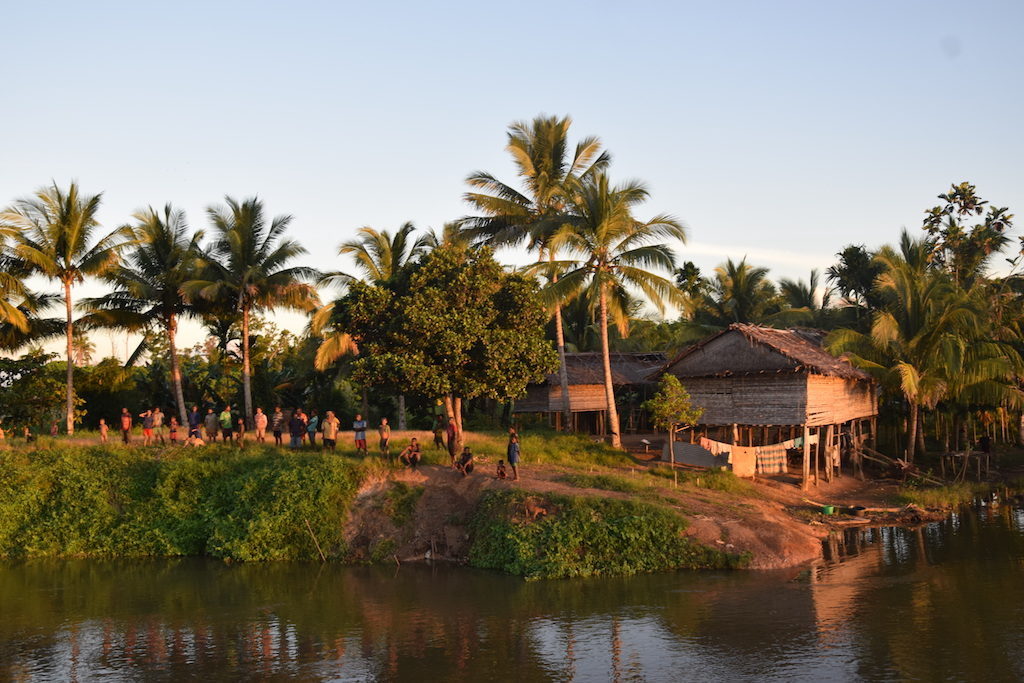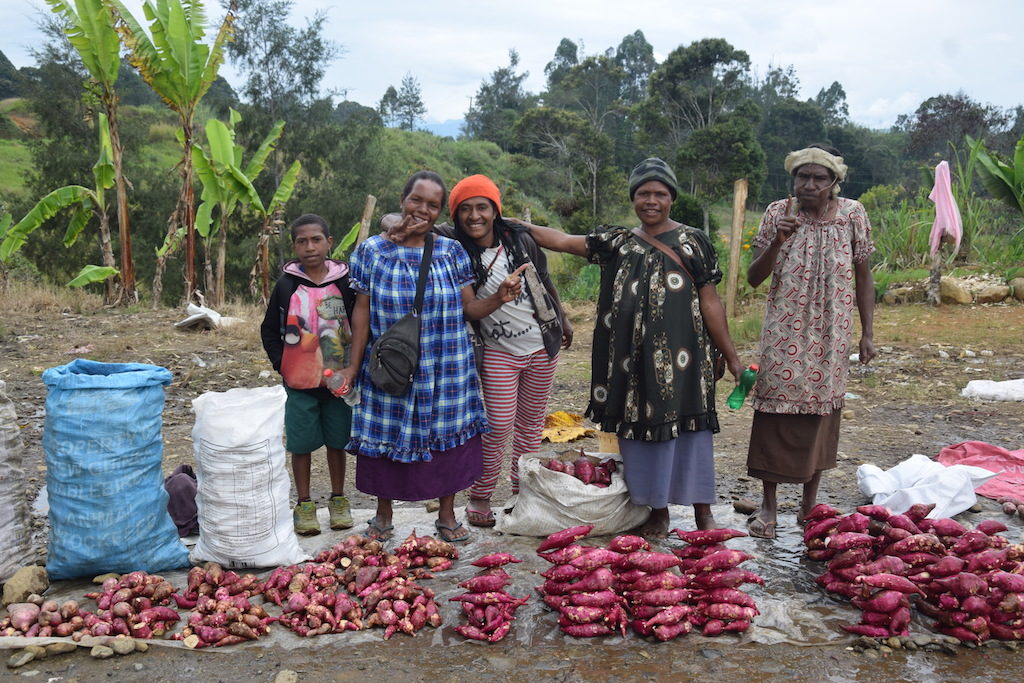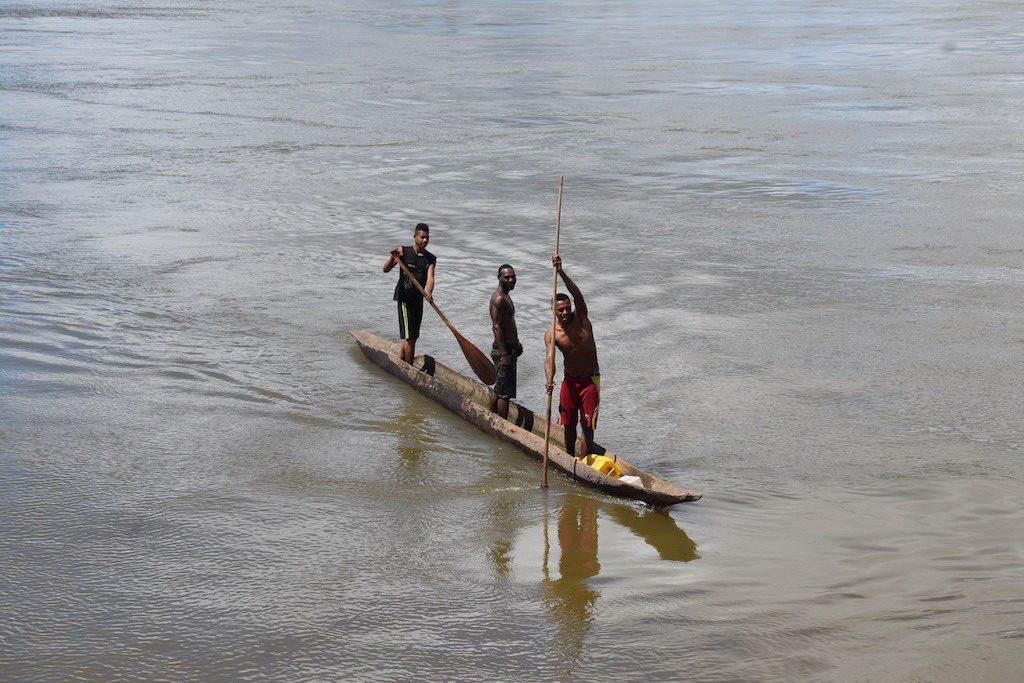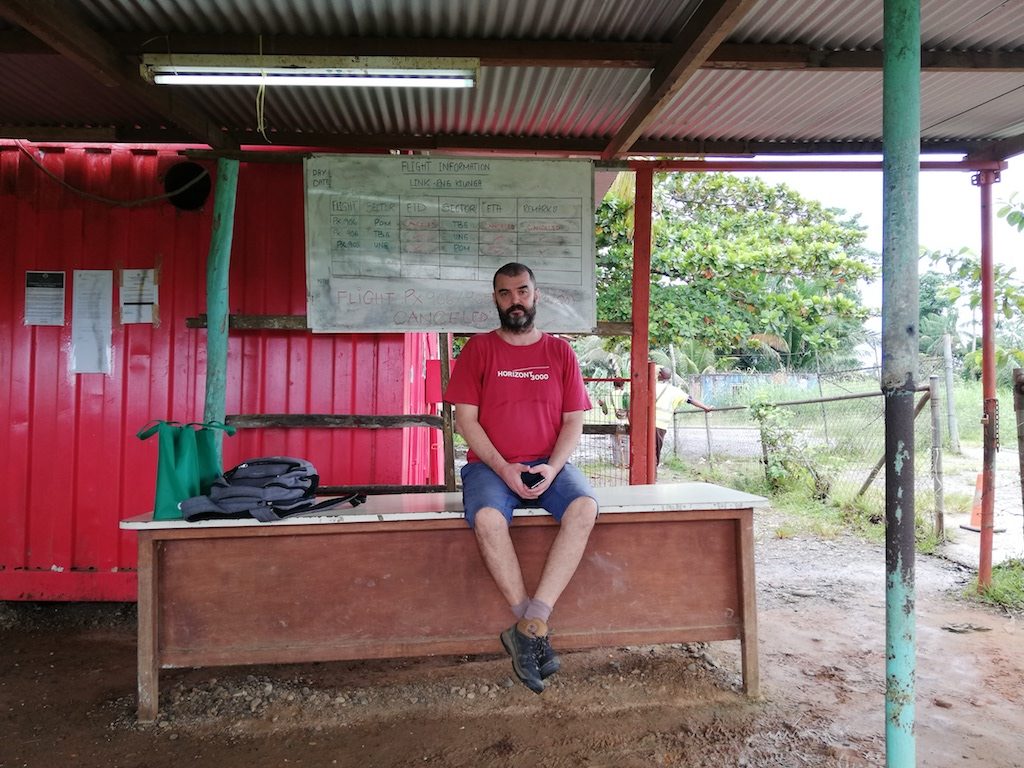Make Your Experiences Count. They Can Change the World.
LET’S BRING ALL OF OUR KNOWLEDGE AND EXPERIENCES TOGETHER.
TOGETHER WE KNOW MORE. TOGETHER WE ACHIEVE MORE. TOGETHER WE DO BETTER.
LET’S BRING ALL OF OUR KNOWLEDGE AND EXPERIENCES TOGETHER.
TOGETHER WE KNOW MORE. TOGETHER WE ACHIEVE MORE. TOGETHER WE DO BETTER.
Published: September 21, 2020
A personal essay of a returnee
I am sitting in the train on my way through the beautiful Austrian alps. Lush green, blue lakes, pleasant temperatures. I’ve been back „home“ for three months now and still it makes me sad, whenever Papua comes to my mind. I decide to use the time of my train ride to put my thoughts to paper, sticking to a clear deadline: The arrival in Vienna. You could go on and on about Papua New Guinea and it would never be enough in order to make the country comprehendible. Time is running out and I am beginning my story, which starts at the end.

Our departure was sudden. Due to CORONA all of the HORIZONT3000 employees were brought back from Papua New Guinea in spring 2020. It was a very hard pill to swallow, because – different from other organisations maybe – none of us would come back. The entire programme was closed down. We were the last. The last Technical Advisors (TAs) after over 60 years of HORIZONT3000’s collaboration with Papua New Guinea. That’s quite something. Even more so, since in remote areas of the Western Province, people got in touch with the outside world only in the 1960s. So we can agree upon the fact that we are talking about a long and special relationship. How do you end something like that? I, for one, don’t know.
From a distant point of view, one could argue: 60 years? It’s about time you leave. That might not be entirely wrong, as becoming redundant actually is the objective of development cooperation. Personally, in my own project, the looming end incited me to focus more on the essential things, which seemed possible to carry out in the little time remaining or which at least had to be given a push. No, were not talking about sustainable project management here – I know. We were putting our faith in quick shots that would hopefully turn out to be a chance hit. Just as in this train here, however, time kept running and so I decided to do what I could – the end in sight already.
If there’s one thing I wish for the people in Papua, it is time. Time to find their own answers to all the new developments that are descending on them at breathtaking speed. Developments that change a lot. Communication, communal life, the entire way of living. Yes, things do change around here as well – social media and mobile phones have notably shaped our communication in recent years. That’s why I’ll give you another example for what “change at a breathtaking pace” means in Papua New Guinea:
When my partner asked his 50 year old colleague about the profession of his father, his answer was: „He was a warrior“. His father had been a traditional warrior. They call it „first contact“, which refers to the generation of the peoples that first had contact with white people. Today, the son of this warrior works with CAD programmes (computer-aided design) on a computer, has a smart phone and drives a car. The adaptability people have there is mind-blowing. The gap between the two different worlds, in which people from one generation to the other grew up in, does involve something daunting as well. Their way of life has evolved into something „different“ that can have an uprooting effect, above all for young people, and leaves them without any clear idea of their identity.
Not long ago, I came across an outdated manual. It was created in 2000 for training teachers in Papua New Guinea in simple bookkeeping. The first page of the manual shows a banknote and a bag of rice. Below it says „Money is something of value that you can exchange for something else.“ In some regions of the country markets are a new development and have only existed for a couple of years. 80% of the population are self-sustaining farmers. The way I experienced it, people still stick to their traditions a lot. The „old“ way of living, the „village-life“ is present and close. During vacations and holidays most people from the cities return to their hometowns. Some appreciate this simple lifestyle and don’t see it neither as unprogressive nor as if it had to be changed from the bottom up.

Some things are really good in Papua New Guinea, and I am not talking about the delightful tropical fruits that you can find daily at the market. I am talking about social basic conditions. Somebody told me that Papua New Guinea does not have any homeless people, as everyone is a landowner. 95% of the country belongs to the indigenous population or village communities. It is referred to as “customary land”. Some say, that this is limiting the country’s economical development, since big infrastructure projects always require the approval of affected landowners. They like to set conditions (in most cases of monetary nature), or they simply hinder projects completely. Long negotiations are certain, since the land does not belong to one single person, but to a whole community that has to agree on the plan. It’s everything but easy.
The indigenous population is equipped with a strong power factor: they have their own property. I believe that this fact comes with the potential of being able to doing things differently in Papua New Guinea. People have a deep connection to their country. No matter at which place someone passes away, people are always buried in „Papa Graun“, which refers to their own ground. I have seen more than one coffin being unloaded from one of the small airplanes that land regurlarly in Kiunga. The high transportation costs have to be covered by family and community members. Death in Papua New Guinea happens often and it happens fast. The fact that communities take on the enormous costs, highlights the significance of their own ground and property. It represents the livelihood of most people, which is part of the reason why they feel such a deep connection to it.
Related to this topic are the disastrous effects of various projects in the area of raw material extraction, as for instance deforestation or, as we could observe very closely, the mining of copper and gold in the OK-Tedi Mine, located 175 kilometers from our site of assignment in Kiunga. The pullotants and sediments that are dumped into the nearby river drown sago palms and make the fish die.

In a conversation I had with a person living there, he put the resulting effects for the surrounding population in a nutshell, „in former times we lived on fish and saksak (sago flour), now we have to earn money to be able to buy tuna and rice.“ Communities living in defined areas close to the mine receive compensation payments. The OTDF (Ok Tedi Development Fund) supports projects for instance in education and health, and gives funds directly to the village communities. A quick buck changes the people. There are parents who do not send their children to school anymore, since the compensation payments are coming in regularly anyway – education for children does not seem relevant anymore. Alcoholism and addiction to gambling are gaining ground. Resistance against the devastating consequences of resource mining is therefore weak.
In Madang at the coast we were able to get to know the Bismarck-Ramu-Group, a local NGO that promotes the environmental protection in the country. They mainly sensitise communities, shed light upon land rights and create awareness of long-term consequences that can be caused by exploiting the nature. The most crucial aspect is, according to the NGO representatives, that the land remains in the community’s hands. In order to get easy access to landholding or usage rights, companies try to urge communities to define a single official representative, who can sign contracts on behalf of the entire community. It is easier to win a single person for a project than a whole group of people, above all with the corresponding benefits offered in return to the representative.
The Organisation Bismarck-Ramu has been successful in many cases, stopping scheduled projects that would have had disastrous consequences. The fight, however, is not over. And this is where I come back to the potential I see: For now, people have control over the majority of the land and consequently over their future and children as well. „Lukautim graun bilong yu“ says one of the mottos of the Bismarck-Ramu-Group in Tok Pisin, which means „take care of your property and land.“

Could Papua New Guinea possibly manage to respond to this new era with its own answers? Without isolating itself, but choosing its own courageous paths? I hope so for the people.
Announcement „Vienna, Meidling“ – I have to get off. Time went by quickly – on the train and in Papua New Guinea. I am thankful to have had the chance to get to know this great country. The era of HORIZONT3000 and consequently of the Austrian development cooperation in Papua New Guinea has come to an end. Some Austrian Technical Advisors more or less will not make that much of an impact for a country as big as Papua with all of its diverse challenges. Luckily other international organisations remained in the country, in spite of Corona.
The world is moving closer together day by day. Nevertheless, I dare to say that noone can even begin to understand Papua New Guinea in its variety and differences without having been there personally. Maybe that is what makes me sad: The missed chance for Austria to stay in direct contact with the country and its people. After all this time, why throw in the towel and leave?
My colleagues from Papua New Guinea did not understand this decision. They, however, thanked me for the longstanding support and friendship, as if I were the official representative of all Austrian people. With these words I would like to pass on their thanks.
Liebe Regina, toller Artikel, danke für den Einblick und deine Gedanken!
Liebe Regine, vielen Dank für diesen Artikel; Deine gelungene und sehr ausgewogene Darstellung der Situation in Kiunga, stellvertretend für viele Regionen in Papua Neu-Guinea.
Alles Gute für Deine weitere Mitarbeit bei HORIZONT3000, schön dass Du weiterhin dabei bist!